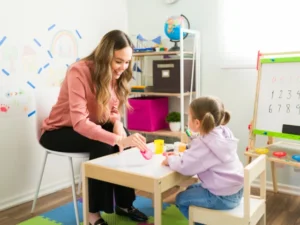 Experiencing grief and loss is a universal aspect of the human experience.
Experiencing grief and loss is a universal aspect of the human experience.
It’s also deeply personal and can be incredibly challenging and overwhelming. Whether you’ve lost a loved one, suffered termination of employment, had to release a beloved pet, or suffered betrayal or the break down of a cherished friendship, grief can take its toll on your emotional and mental well-being. And because it affects us so deeply, grief often surfaces when we least expect it.
If you’re experiencing grief right now, seeking support and obtaining qualified grief counseling is one of the very best things you can do.
The 5 Stages of Grief
When it comes to grief and loss, individual experiences vary enormously.
Renowned Swiss-American psychiatrist Elisabeth Kübler-Ross was the first to propose a model for the 5 stages of grief, and it’s a helpful way to understand the emotions that you (or someone close to you) might be going through. These stages are defined as:
- Denial. As humans, we resist change, and sometimes refuse to accept that something life-changing is happening to us, especially when that change is deeply traumatic.
- Anger. Anger is born from fear and a sense of helplessness. And, whether we choose to accept it or not, there are many things in life we cannot possibly control or prevent.
- Bargaining. This is particularly prevalent if we’re faced with the inevitability of someone close to us passing away, or the fear of not being able to cope in the face of major life challenges like an impending divorce or career change.
- Depression. Depression is a complex issue, and it’s at this point that someone experiencing grief is most vulnerable. Sensitive, supportive therapy can go a long way toward helping navigate the feelings of despair, isolation and powerlessness that so often accompany depression.
- Acceptance. Learning to adjust – and eventually thrive – is the final stage of grief. It doesn’t mean that we “stop” grieving, but rather that we integrate our emotions and learn to process them in ways that enable us to move forward and discover a measure of peace as we grow.
It’s really important to remember that not everyone will experience these stages in the same order or intensity. People can “loop back” or revisit various stages of unprocessed grief, sometimes years after the loss or life change.
Grief is a unique journey for each individual, and it’s important to honor the a person’s own process.
Processing Grief: Children versus Adults
For adults, grief can be utterly debilitating. But for children, it can be even more bewildering and frightening.
Children don’t always have the same levels of understanding, or the emotional tools to deal with the profound changes they’re experiencing. For a child, grief might be expressed through dramatic behavioral changes, emotional or intellectual regression, or increased difficulty in articulating their emotions.
If a child is grieving a loss or change, one of the most significant ways of providing support is to create a safe and nurturing environment where the child can express themself freely. Therapy is an excellent way of doing this – because it takes place in a neutral, supportive, and safe space. Gentle interaction and communication can help alleviate the fear and sadness that so often accompany loss.
In comparison, adults often encounter a more complex grieving process. Why? Because although they may have a more elaborate intellectual understanding of grief, they invariably face the challenges of balancing emotional turmoil while maintaining everyday life and dealing with practical responsibilities.
Because of this, adults very often tend to suppress or compartmentalize their emotions, which can negatively impact happiness and mental health in the longer term.
Grieving is a Personal Journey
Grief is a deeply personal experience. That means there is no right or wrong way to cope with it.
Some individuals find solace in remembrance and celebration of the life of a loved one, while others might prefer privacy and introspection. Some seek comfort in the company of friends and family, while others might prefer time alone for self-reflection and private mourning. It’s important to understand and respect individual ways of processing grief – and to create a supportive and compassionate environment for those who are mourning.
Also, grieving is not always related to death – there are defining life events like divorce, loss of a dream job, or friendship breakups that can feel no less devastating.
Healthy Coping Strategies for Grief
You can’t force healing, but you can support it.
Here are 3 helpful ways to create an environment that brings a sense of peace and equilibrium:
- Engage in regular physical activities like reflective walking or yoga. These can help release tension and improve overall physical and emotional wellbeing.
- Express your feelings through creative and therapeutic outlets like writing, painting, or music. Journaling and meditation create inner space and a sense of greater calmness, while art therapy, facilitated by a qualified therapist, can be extremely helpful.
- Maintain a balanced diet, ensure you get enough rest, and seek support from loved ones or trusted friends. A compassionate support network is one of the most valuable and reassuring sources of comfort during a time of distress and sadness.
It’s important to remember that healing takes time, and there is no rush to “get over” grief. Don’t allow anybody to tell you otherwise!
The Role of Grief Therapy
Grief therapy can be an enormously valuable resource for those struggling with the grieving process. A skilled therapist can provide a safe and non-judgmental space for individuals to explore their feelings, fears, and memories related to the loss. Therapy also offers tools and support to promote healing and resilience during this challenging time.
“Complex grief” is a term often used to describe the experience of someone who is grieving due to the loss of a loved one due to an untimely or unnatural death. This could be the death of a child, a traumatic event like a car accident, a terminal cancer diagnosis, or a death by suicide. The range of emotions in situations like these can understandably become very complex. Very often, the overall sense of grief is accompanied by an increase in guilt, shame, regret, or bewilderment.
Complex emotional challenges can be very difficult to deal with alone – and for that reason, therapy is a truly effective way of providing support during times of turmoil and uncertainty.
How do you know if a loved is experiencing complex grief? Very often, they have great difficulty progressing through the stages of grief or have an extremely prolonged period of grieving that goes on for years. If, for example, you experience an overwhelming emotional reaction whenever you talk about the loss of a loved one, you may be experiencing complex grief and may require help to work through your emotions.
Grief is highly personal, and each one of us experiences it in different ways. Always remember that time, support, and self-compassion are powerful allies in your journey toward healing.
Let’s Talk
Whether you’re an existing client at My Therapy Connection or would like to know more about how therapy can help you process grief, know that we’re here for you and that we care. Many of our therapists are highly qualified grief counselors and can work with you to help navigate life events that involve loss and grief.
For a no-obligation introductory chat, simply contact us.




